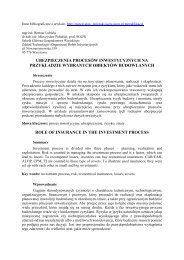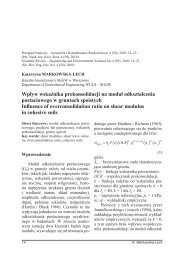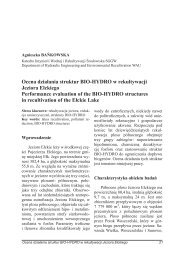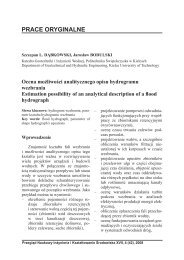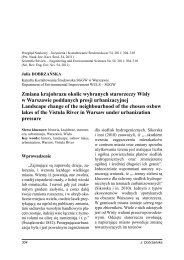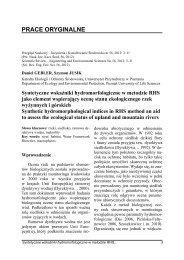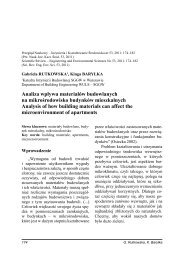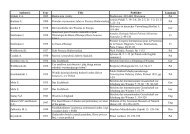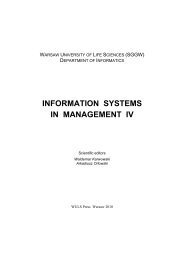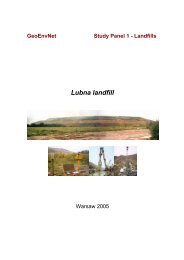ACTA SCIENTIARUM POLONORUM - SGGW
ACTA SCIENTIARUM POLONORUM - SGGW
ACTA SCIENTIARUM POLONORUM - SGGW
You also want an ePaper? Increase the reach of your titles
YUMPU automatically turns print PDFs into web optimized ePapers that Google loves.
The effi ciency of selected real estate markets in Poland 85to subsequent researchers, if prices are to reflect all available information, they shouldchange only when new information appears. Since information enters the market ina random fashion, price changes should also have a random character [Gabryś 2006].According to Fama [1990], an effi cient market is defi ned as a market where thereare large numbers of rational, profi t-maximizers actively competing, with each trying topredict future market values of individual securities, and where important current informationis almost freely available to all participants. In an effi cient market, competitionamong the many intelligent participants leads to a situation where, at any point in time,actual prices of individual securities already refl ect the effects of information based bothon events that have already occurred and on events which the market expects to takeplace in the future.Szyszka [2003] argued that if there are irrational investors on the capital market, theiractions are random in character and they neutralize each other without affecting the prices.If there is a larger group of irrational investors who make similar decisions, the effectsof their actions are eliminated by rational investors through arbitration.According to pioneer researchers in the area of real estate market efficiency, a marketis efficient if its fulfils the following theoretical assumptions:– it has an infinite number of participants who appraise the value of real estate independentlyin an effort to maximize the profit generated by real estate,– a single participant is unable to change real estate prices,– information that could affect real estate prices is generated in an uncorrelated manner,– information instantly reaches all market participants,– information is freely available,– there are no transaction costs,– all investors make instant use of the received information,– every investor has identical expectations as regards the information's effect on realestate prices and the expected return rate,– all market participants have identical investment horizons.In line with the above assumptions, prices are determined as follows [cf. http://www.naukowy.pl/...; Grossman, Stiglitz 1980]:––––prices ideally reflect the value of real estate at any moment,prices change instantly in response to new information, and they remain stable untilnew information enters the market,higher than average profits cannot be generated in the long run,prices change independently.Throughout decades, researchers came across examples demonstrating that market efficiencytheory does not always work. The early 1980s were marked by several anomaliesthat seemed to undermine the efficiency of financial markets. Those anomalies continueto be studied, while new irregularities are surfacing. A new field of study, behavioralfinance, was created to explain the phenomena that contradict the hypothesis of marketeffectiveness. Behavioral finance examines stock market anomalies by analyzing systematicerrors made by humans when predicting the future, a fact that has also been demonstratedby psychological research.Oeconomia 10 (1) 2011




